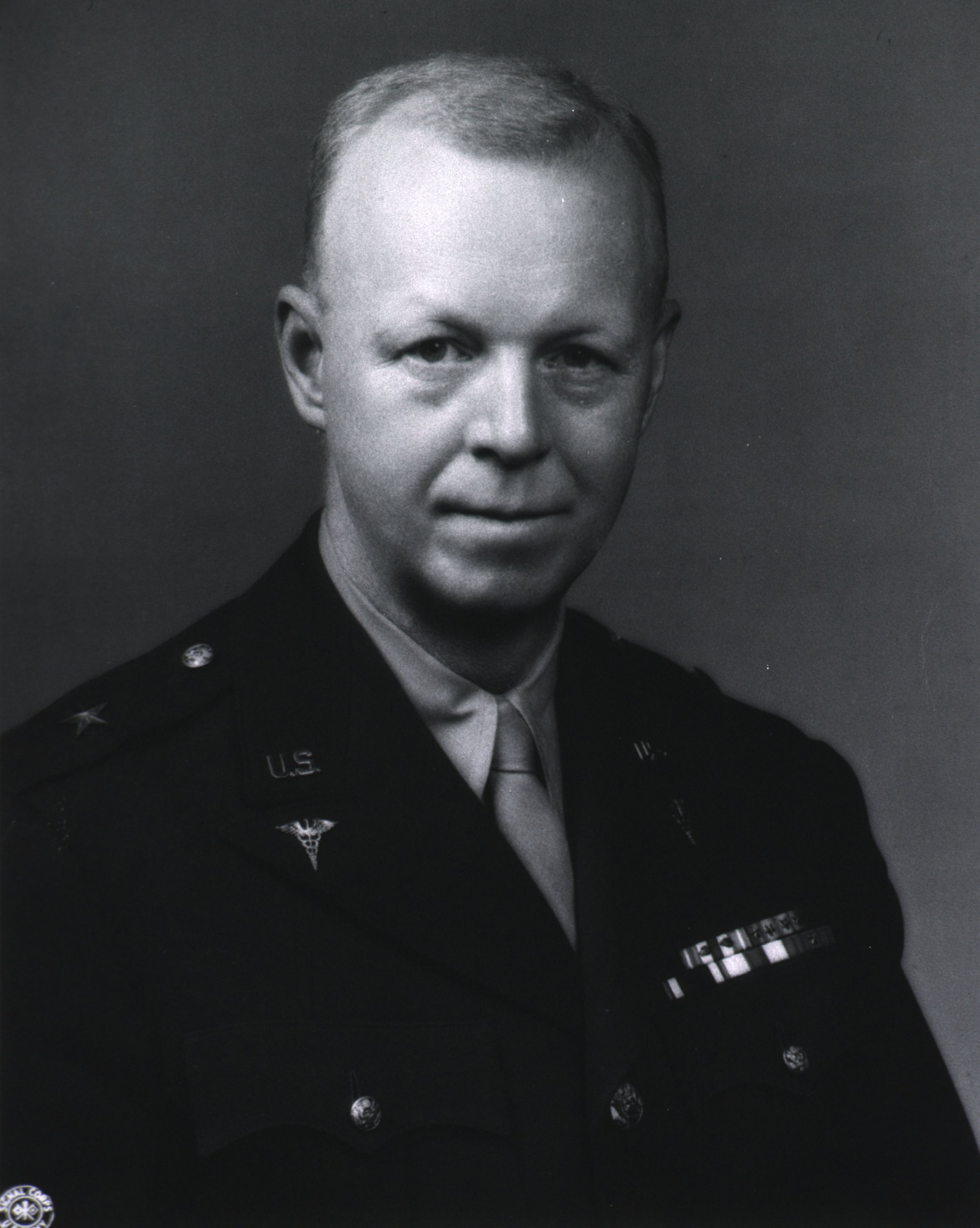BJACH History

On January 22, 1941, shortly after Camp Polk was activated, construction of a 600-bed station hospital began. Opened on March 17, 1941, as an infirmary commanded by Colonel William Dow, MC, the hospital admitted its first patient in May 1941. In 1942, the hospital continued to expand to accommodate the Soldiers housed on the newly built North Fort Polk and prisoners of war from the camp who were held on what is now Honor Field. Continuing its growth, the hospital was designated a regional hospital in June 1944. The hospital was inactivated on December 31, 1946, at the end of World War II.
The hospital was reactivated with 150 beds in August 1950 when the outbreak of hostilities in Korea occurred. By the end of the year, the hospital had been expanded to 500 beds. In 1954, the post and the hospital were again inactivated. Reactivated in 1956, the hospital was gradually reduced to no activity by June 1959 and closed in August of that same year.
In September 1961, the hospital was reopened and manned by the 829th Station Hospital, an Army Reserve unit from Florida. Five active field units were assigned to the hospital in August 1962 and the capacity was increased to 200 beds. Expanded to 250 beds in 1965, the hospital's staffing was reduced when two of the assigned units deployed to Japan and Vietnam.
In 1966, as a result of heightened involvement in Southeast Asia and Fort Polk's role as a major training center, the hospital capacity was increased to 570 beds and nine dispensaries manned by the hospital. Also, that year an accreditation committee was formed and in 1967 the hospital received full accreditation from the Joint Commission.
In June 1973, the hospital was reassigned from the Continental Army Command to the Health Services Command. In February 1980, it was renamed from the U.S. Army Hospital, Fort Polk, to U.S. Army Community Hospital, Fort Polk.

Ground was broken for the new 169-bed Bayne-Jones Army Community Hospital (BJACH) in June 1978. The hospital was dedicated and formally opened August 12, 1983. The facility was named in honor of Brigadier General Stanhope Bayne-Jones, MC, U.S. Army, a native of New Orleans, Louisiana. A bacteriologist and preventive medicine specialist, General Bayne-Jones achieved worldwide acclaim as the individual responsible for the control of typhus in Europe at the conclusion of World War II. He died in 1970 and is buried at Arlington National Cemetery.
In 1991, while the Fort Polk MEDDAC was a subordinate command of the U.S. Army Medical Command (MEDCOM), it became one of the elements of the Great Plains Regional Medical Command (GPRMC). In October 2009, under a MEDCOM realignment, BJACH became a member of the Southern Regional Medical Command (SRMC). Both MEDCOM and SRMC, are located at Fort Sam Houston in San Antonio, Texas.
In 1995, Bayne-Jones Army Community Hospital (BJACH) achieved a 97 percent rating and commendation on the Joint Commission inspection. This achievement was repeated in 1998 placing BJACH in the top three percent of hospitals in the nation. In 2001,2004 and 2007 BJACH again excelled on The Joint Commission inspections.
BJACH has received the prestigious TRICARE award for the highest customer satisfaction in OB care in the Department of Defense; its Logistics Division was name "the best Logistics Division in the AMEDD" by the Command Logistics Review team and the Data Quality Management Program was recognized by the Army Surgeon General's Office as the model for the Army Medical Department. The American Red Cross also presented BJACH with the Regional Level II "Good Neighbor Award." BJACH has been awarded the Army Superior Unit Award for meritorious performance.
Bayne-Jones Army Community Hospital has become one of the premiere Army facilities where the staff clearly lives up to their motto, "
We Provide the Best."